The primarily car-free lifestyle in the Netherlands is, of course, mostly to do with the Dutch love for bikes.
The nation is home to more bikes than people and boasts one of the world’s most impressive bicycle path networks that spans no less than 35,000 kilometres across the whole country.
This stellar reputation is demonstrated most impressively in Utrecht. This city, a mere 20 minutes by train from Amsterdam, is consistently reducing roadways, is home to the world’s largest bike parking lot and its latest city designs include a completely car-free neighbourhood.
Prioritising people over cars
Merwede: the car-free neighbourhood
Utrecht recently unveiled its latest plans for a completely car-free neighbourhood, Merwede. The Merwede neighbourhood will be home to 12,000 residents. All important facilities, including Utrecht Central Station, will be within walking or cycling distance.
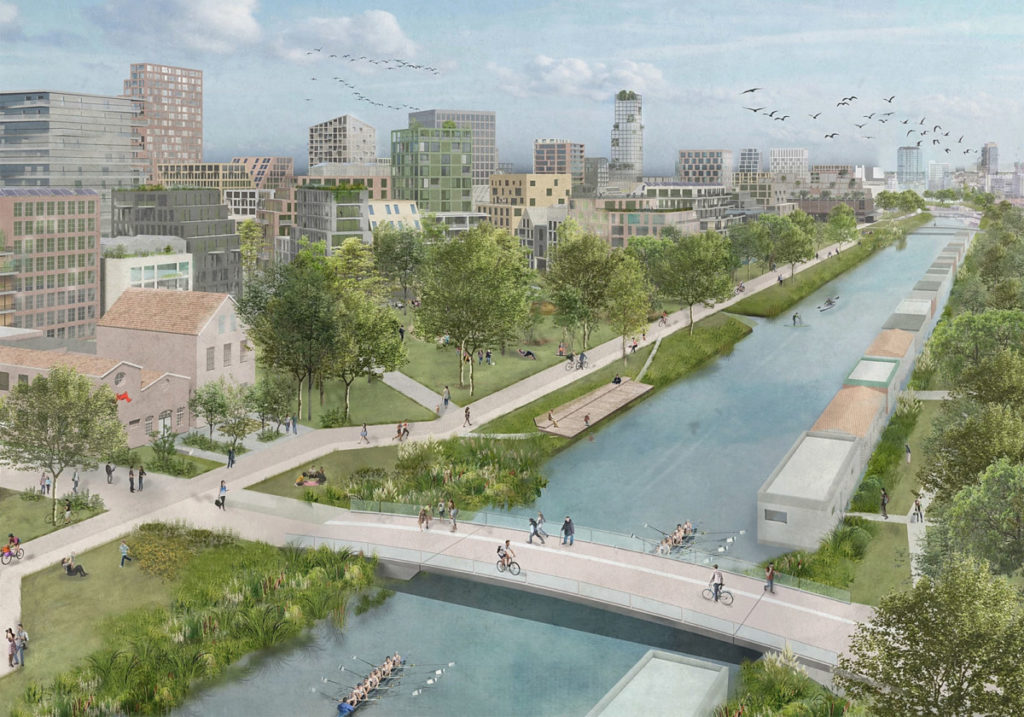
The Merwede canal zone was originally a business park but will be transformed over the next couple of years into a lively, sustainable area of the city. The goal of the area is to be a place where people can relax, work, and live in a way that’s environmentally friendly and also healthy. For that reason, it will be car-free.
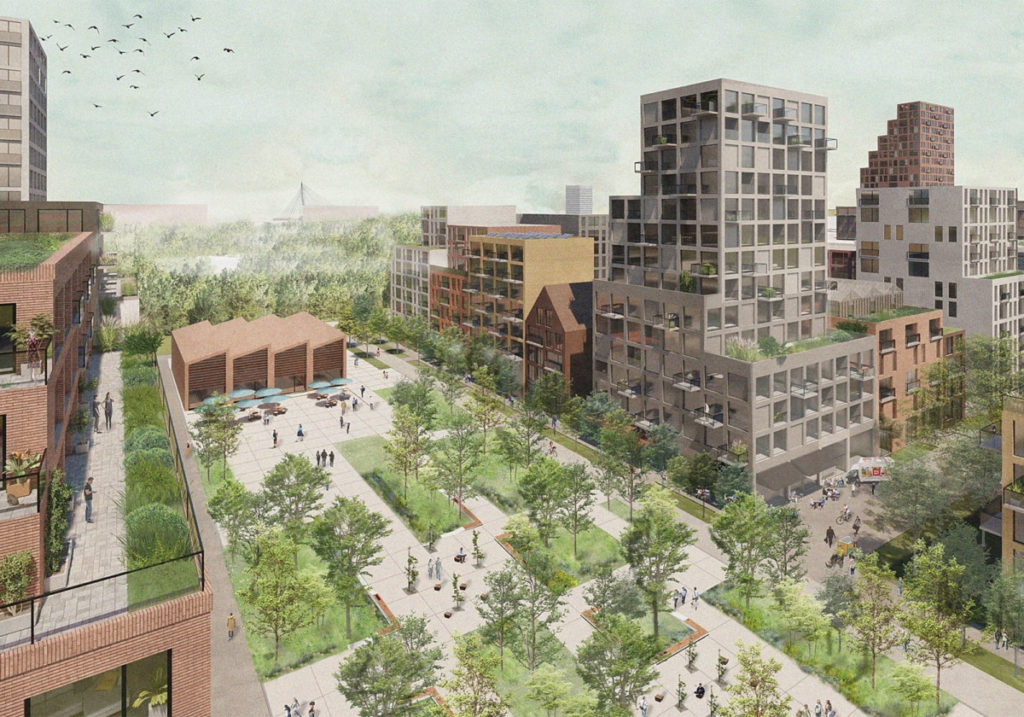
Circular economy
Another crucial aspect of the new neighbourhood is the idea that it will be a circular economy. That means creating as little waste as possible and using as few new resources as possible. Merwede will become home to De Clique, a circular startup that will try to reuse waste from the hospitality and business sectors.
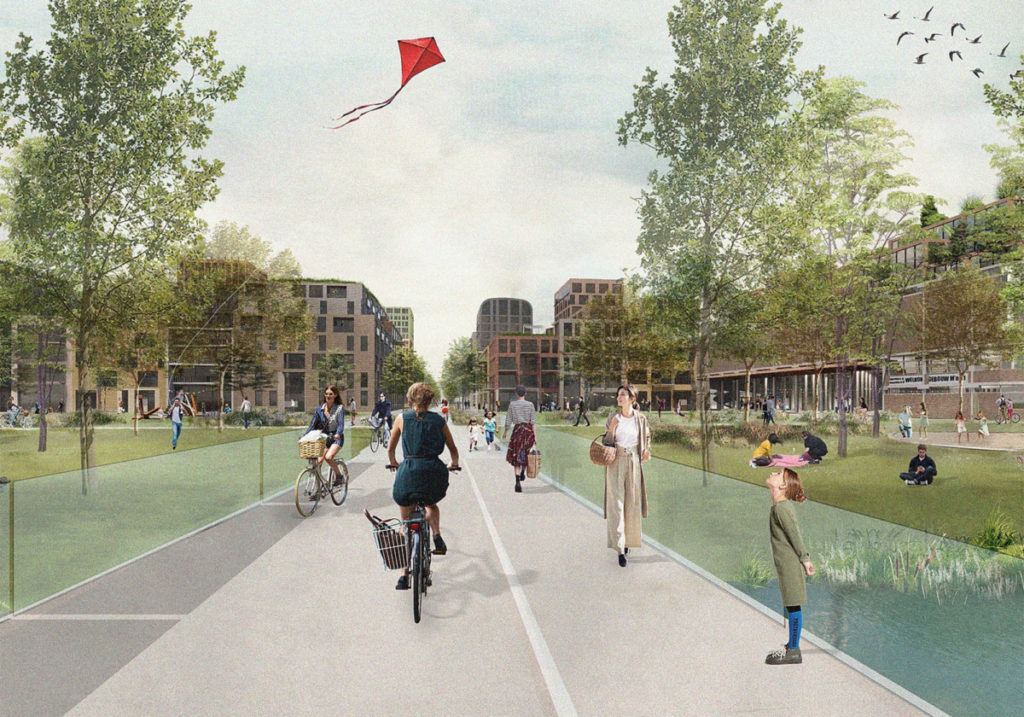
Community building
The city district looks set to be full of exciting activities that will bring the community together. There will be a skatepark, lots of nice restaurants and cafes, and a climbing hall: and all this before people even move into the neighbourhood, so it’s bound to be absolutely bustling once these plans become reality.
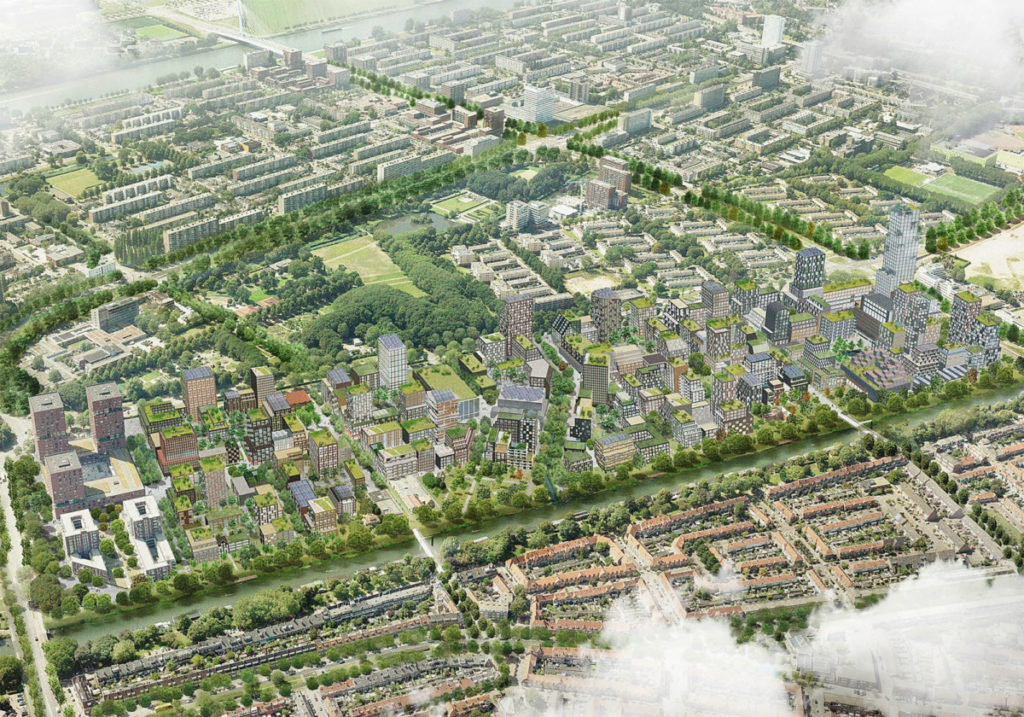
We’re so looking forward to seeing this car-free neighbourhood become reality! When Dutchies bike this much, it seems the most natural of progressions to transition towards a car-free country.
Controversies over prices of apartments
Despite being a forward-thinking project, the pricing of apartments, released earlier this week, has caused its fair share of controversy.
Prices for 167 homes, out of the 600 homes planned to be developed, all exceed 500,000 euros, some of them even approaching one million euros.
Nevertheless, the municipality defends this, by saying that a substantial part of the apartments will be dedicated to social housing, and will have a cheaper price. As newer apartments will be placed for sale, we’ll get a better idea over the exact pricing on the lower end in this futuristic neighbourhood.
But what do you think? Would you give up your car? Let us know in the comments below!
Feature image: Marco Broekman/Supplied.
Editor’s Note: This article was originally published in January 2020 and was fully updated in December 2020 for your reading pleasure.

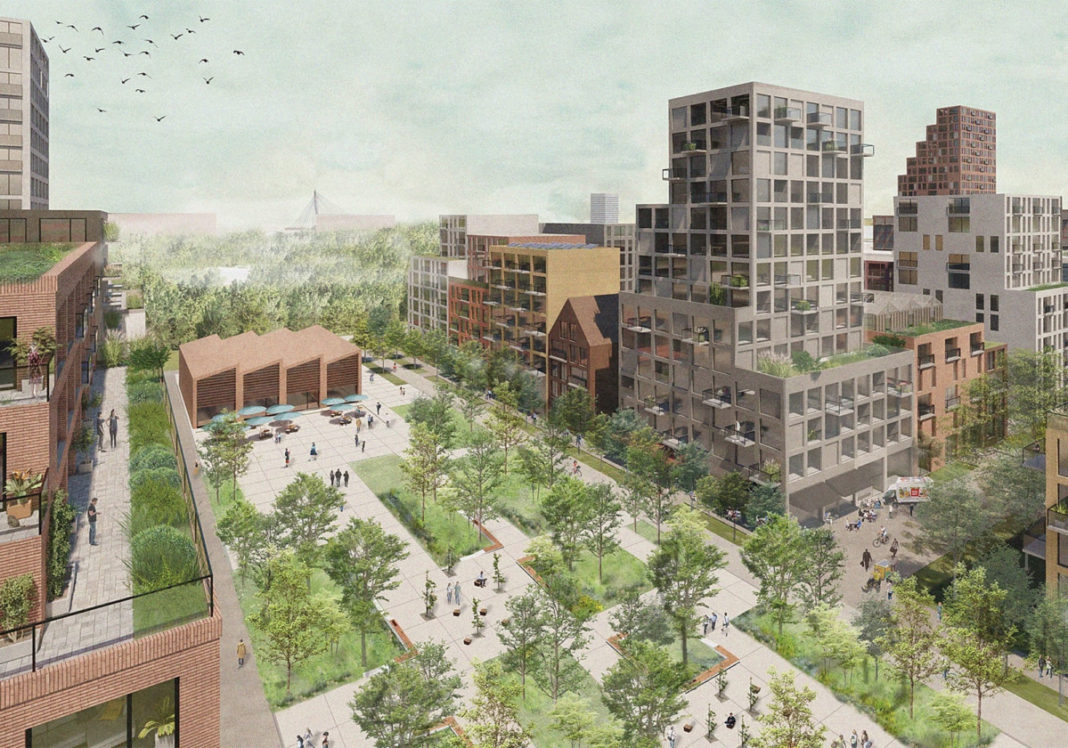

I lived in the Bolksbeekstraat until 1996, and while I like the upgrade of the neighborhood I am also cautious about the concept. How do you move house without access with a van? Can you get the builder to reach your house? It’s one thing to give up your car but not everybody is able to do the same. Also the Rivierenwijk is right to fear that they will have to make room for all the cars of the new occupants.
Great place for people who want to avoid wheelchairs and other disturbing appliances. Looking forward to court cases against the Utrecht government concerning rights of people with disabilities.
I don’t get your point. Do you mean that people with disabilities would have problems to enter this area? I am living in the most car-densed city in Germany and I talked to the local interest group of people with disabilities. They are reaching out to the municipality for years and years to stop the cars over people mentality. The biggest challenge for wheelchairs are that we have cars all over. Besides that “car-free” does mean for the most part that not everyone is allowed to go there by car. As far as I know in the Netherlands you can use small electric vehicles in car-free zones – I saw it in Amsterdam – maybe one can use this, if not able to cycle or go on foot, but not allowed to enter with a SUV for example.
do you have a disability? as you did
not state you are
I would love to live in a car free area.
Echoing the comment made by Joost: what about the elderly and those with limited mobility are they excluded from this new way of living: not everyone is able to walk or ride a bike.
Thanks to the great options to go by bike safe and comfortable in the Netherlands you see a lot of elderly people healthy enough to cycle at a high age. With e-bikes becoming more popular it get’s even more easy for them. And you have small electric vehicles that are not as loud and big as cars which are often used by elderly or disabled people to use car-free zones.
I’ve been to Disney World. No cars anywhere in the park and there were plenty of elderly and people in electric mobility scooters. Some vehicles are needed but most are just carrying one person around that would be healthier if they were on a bike. People pay gym memberships and drive to the gym to exercise. We are off track and it needs to be changed. I’m sure there will be a learning curve and errors will be made.
600 homes to be developed, for 12,000 residents.
So, an average of 20 people per apartment then..?
It’s frightening to see the authoritarian mindset of one lot dictating to another. You do know that the ice caps and polar bears were to have disappeared before 1999. Don’t let an endless list of missed forecasts dissuade you from your eco-freak Marxists impositions. Global cooling in the 1970s, global warming in the 1990s, now catchall climate change bollocks to prove your point with hate speech book-burning censorship just in case ration and reason get in the way.